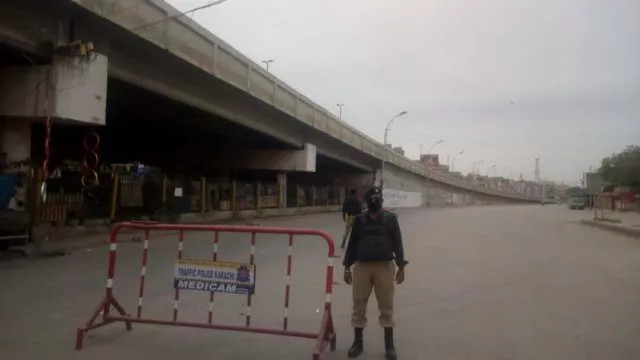How to dilute corona catastrophe
If Pakistan ends up having the most conservative estimate of cases, the whole healthcare system could collapse
Pakistan is the only lower-middle income country amongst the 30 countries with the highest number of Covid-19 cases. Most of the rest are high-income, along with a few upper-middle income countries. Pakistan does not have even a fraction of what these other countries can spend to support their distressed populations in times of coronavirus. No wonder that the Prime Minister’s reluctance to impose a national lockdown is primarily stemming from economic concerns.However, within these 30 countries, Pakistan also has the highest poverty and lowest state capability. This means that in case of Pakistan, not only will the scale of calamity be much larger, but the preparedness and the capacity to respond will also be far lower.
What the PM needs to realise is that irrespective of his decision, a lockdown will happen, nevertheless. If the government will not impose it, the scale of the calamity itself in a few weeks’ time will virtually halt the economy and bring the country to a standstill. And in the case of the latter, the economic and social costs would be far greater.
Let’s first look at the magnitude of the problem. Italy has about 1,000 cases per million people. In comparison, Pakistan has about three, but it is also four to five weeks behind Italy on its trajectory of increase in reported cases. If Pakistan somehow has the same proportion of cases, we could potentially face about 200,000 cases by the end of April. Some are predicting a much grimmer picture with about 90 million Pakistanis eventually catching this virus.
But let’s look at more conservative estimates. From March 16-22, the number of confirmed cases in Pakistan quadrupled. But assuming doubling of cases every six days, we can predict about 80,000+ reported cases in five weeks, with 4,000 patients (5%) in critical condition and thousands dead. The total may touch 10 million by June. We wouldn’t even have the kits to test so many people and without a befitting response, by that time, we would only be counting bodies.
Now look at the country’s capability to handle this crisis. Pakistan ranks 105th amongst 195 countries on The Economist’s Global Health Security Index, reflecting the country’s poor capacity for rapid response and mitigation of the spread of an epidemic, for treating the sick and protecting the health workers. All public and private hospitals put together have a total of 1,700 ventilators, and the government is finding it hard to even ensure availability of safety kits for health workers or facemasks and hand sanitisers for citizens.
The growth of Covid-19 in the US and Europe is persisting in the wake of well-developed health and emergency response infrastructure. Imagine the scale of catastrophe that we can face here. The only way to dilute this catastrophe is to slow down transmission, prevent a community outbreak, and delay the spread.
If Pakistan ends up having even the most conservative estimate of coronavirus cases, the whole healthcare service delivery structure could collapse. The lockdown in Sindh and partial closure of public facilities in other provinces will help in bringing down these harrowing estimates. But we need a well-coordinated national lockdown, with only essential services running.
More importantly, we must realise that a lockdown is necessary but not enough. During the lockdown period, the government must intensify its disease surveillance efforts and focus on case finding and contact tracing and management. Testing capacity has to be ramped up and emergency response mechanisms have to be strengthened, with new temporary quarantine facilities and community health facilities established.
Let’s not delay the decision to impose a national lockdown and do what’s needed. Or else, Pakistan would not be the next Italy but much worse.
Published in The Express Tribune, March 24th, 2020.
Like Opinion & Editorial on Facebook, follow @ETOpEd on Twitter to receive all updates on all our daily pieces.


COMMENTS
Comments are moderated and generally will be posted if they are on-topic and not abusive.
For more information, please see our Comments FAQ